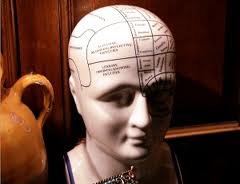What we were, how we think, & who we are

marketingu.com
“As a man thinketh in his heart so he is”
“We don’t see things as they are, we see them as we are.”
Anais Nin
“We don’t see things as they are, we see them as we are.”
Anais Nin
Thinking about thinking
Why do we make the choices we do? Why did we choose the place we live? Who we share our most intimate experiences with? Why did we choose the friends we chose in life? The job we work, the car we drive, the clothes we wear, places we habitually go, things we do, the type of T.V programs we watch, what we read, what we use the internet for, are all elements that make up the character of our life. Let’s get a little more personal. Really think about this.
Think about your thinking.
Why do you think the thoughts you think? (Perhaps eighty thousand a day) If you were able to take the thoughts you think and turn them into a movie would you encourage your family and friends to watch it. Would you feel vindicated or embarrassed?
The point is we all live with our thoughts simultaneously having and experiencing them and in a sense observing them from time to time, when we feel introspective. Perhaps, considering how our thoughts fit or do not fit into the world around us, whether or not there are consequences if we act on our thoughts for better or worse is the foundation of leading an examined life. Another way of describing this process is introspection.
Think about the hierarchy of your thoughts. Certainly there are thoughts that seem to naturally keep recurring without effort, that persist as ‘themes’ in your pecking order of importance. Perhaps there are habitual beliefs about the world you live in. Habitual thoughts that come to be dominant through their frequency may or may not be healthy, important or not really important. The concept of habitual thought is central to most religions the Bible has referred to it as the "meditation of your heart". Unfortunately, many of us know from a rational perspective, that what occupies our thoughts is not really in the end what is truly important. What we choose to think about the most is what gives us a sense of purpose in life. That purpose is in the big picture, in the big ‘M’ (meaning) sense trivial. In other words we know deep down inside that what we are focused on, the meditation of our heart, is really probably not all that important. However, we still through choice and lack of desire or commitment to change keep clinging to the pattern of thinking.
By acknowledging the power of patterns in our thinking we may be able to identify what it is that threatens our sense of purpose in life. The pursuit of meaning should impose a sense of hierarchy on our thinking, in which thoughts about ourselves as well as compulsive thinking patterns will fall in subjugation to a more powerful and universal symbol. The consideration of others, and the need to lead a life of activities that center on love as an expression of our most dominant motivation is particularly powerful in transforming our inner thought life.
The point is we all live with our thoughts simultaneously having and experiencing them and in a sense observing them from time to time, when we feel introspective. Perhaps, considering how our thoughts fit or do not fit into the world around us, whether or not there are consequences if we act on our thoughts for better or worse is the foundation of leading an examined life. Another way of describing this process is introspection.
Think about the hierarchy of your thoughts. Certainly there are thoughts that seem to naturally keep recurring without effort, that persist as ‘themes’ in your pecking order of importance. Perhaps there are habitual beliefs about the world you live in. Habitual thoughts that come to be dominant through their frequency may or may not be healthy, important or not really important. The concept of habitual thought is central to most religions the Bible has referred to it as the "meditation of your heart". Unfortunately, many of us know from a rational perspective, that what occupies our thoughts is not really in the end what is truly important. What we choose to think about the most is what gives us a sense of purpose in life. That purpose is in the big picture, in the big ‘M’ (meaning) sense trivial. In other words we know deep down inside that what we are focused on, the meditation of our heart, is really probably not all that important. However, we still through choice and lack of desire or commitment to change keep clinging to the pattern of thinking.
By acknowledging the power of patterns in our thinking we may be able to identify what it is that threatens our sense of purpose in life. The pursuit of meaning should impose a sense of hierarchy on our thinking, in which thoughts about ourselves as well as compulsive thinking patterns will fall in subjugation to a more powerful and universal symbol. The consideration of others, and the need to lead a life of activities that center on love as an expression of our most dominant motivation is particularly powerful in transforming our inner thought life.